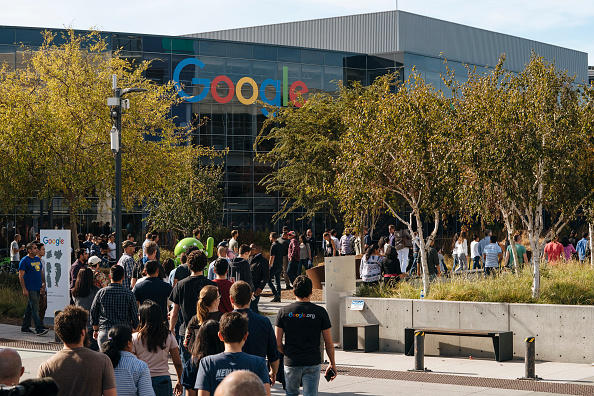In November, more than 20,000 Google employees walked out of their work stations in protest of sexual harassment within the company. The walkouts came after one executive was paid millions of dollars in an exit package despite having been found to sexually harass another employee.
Now, two Google employees have come forward to say that the company has retaliated against them following their roles in staging the walkout. In a letter retrieved by Wired, Claire Stapleton and Meredith Whittaker say they were demoted and had large roles within the company taken away.
“I was told that I would be demoted, that I’d lose half my reports, and that a project that was approved was no longer on the table,” Stapleton said in the letter. “I escalated to HR and to my VP, which made things significantly worse.”
Stapleton said that her manager began ignoring her. In addition, her work was given to other people and that she was asked to go on sick leave, despite not being sick.
“Only after I hired a lawyer and had her contact Google did management conduct an investigation and walked back my demotion, at least on paper,” Stapleton said in the letter. “While my work has been restored, the environment remains hostile and I consider quitting nearly every day.”
Whittaker said she was removed from her role at the AI Now Institute at New York University, which she cofounded.
Last week, AfroTech covered one of Whittaker’s reports for the AI Now Institute, which said that the artificial intelligence industry was in a diversity crisis. The report highlighted the lack of women and people of color — at Google and Facebook — as some of the issues impeding AI development.
“I have worked on issues of AI ethics and bias for years, and am one of the people who helped shape the field looking at these problems,” Whittaker said in the letter. “I have also taken risks to push for a more ethical Google, even when this is less profitable or convenient.”
A Google spokesperson told the New York Times that there was no retaliation against Stapleton, Whittaker or other employees.
“We prohibit retaliation in the workplace, and investigate all allegations,” the spokesperson said. “Employees and teams are regularly and commonly given new assignments, or reorganized, to keep pace with evolving business needs. There has been no retaliation here.”
Tensions between Google employees and executives have been mounting for some time. In 2018, Google employees forced the company to back out of a drone contract with the Pentagon, writing a letter stating, “Google should not be in the business of war,”as reported by The New York Times.
This year in particular has been a rollercoaster for Google as the company tries to revamp some of its policies and practices, while also keeping its employees at bay.
In March, Google ended its force attribution, allowing employees to now sue the company. The company ended the rule specifically for sexual harassment and discrimination cases, but later included all types of cases.
April served as another month of unrest as Googlers petitioned the removal of Kay Coles James, president of the Heritage Foundation, to Google’s artificial intelligence ethics board.
“Google has a culture of retaliation, which too often works to silence women, people of color, and gender minorities,” Stapleton said in her letter.
As Google finds new ways to monitor the ethics of its artificial intelligence, tensions within the company highlight other types of ethical issues.

